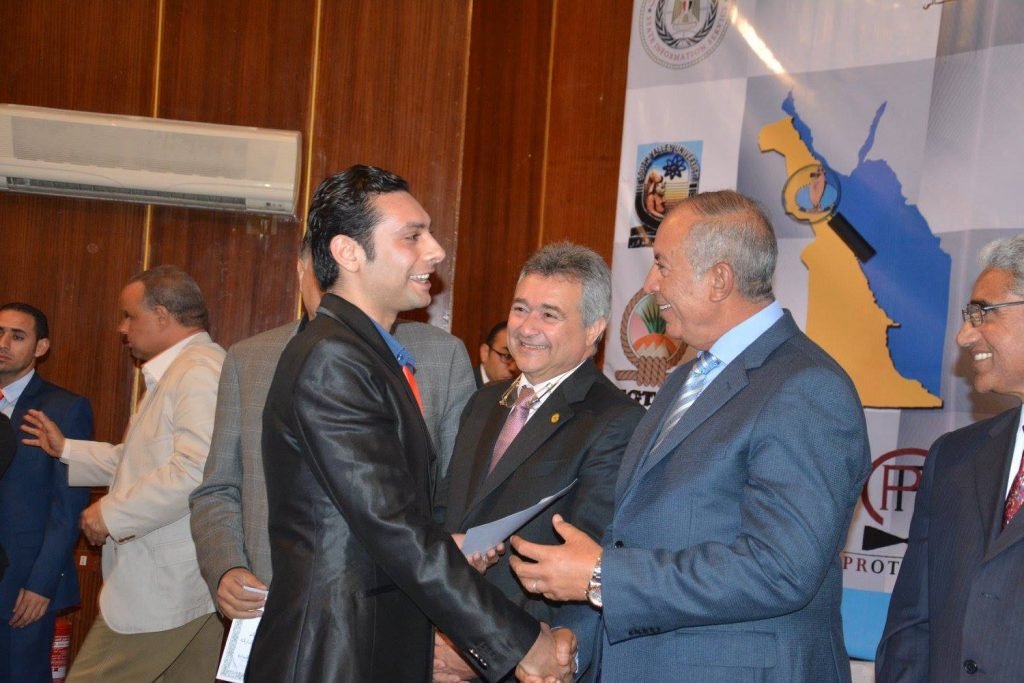A note: Asante Africa Foundation acknowledges varying perceptions of gender norms worldwide. It is not our intent to diminish any specific belief on gender identity. However, there are occasions to discuss issues in cisgender terms, such as reporting global statistics. This article is written by a cisgendered male and addresses how cisgendered males can strive to coexist in a world where stereotypes are all too common.
Reflections on International Men’s Day
 Looking Up
Looking Up
A young boy sees a familiar face on a screen, and it looks different this time. The cheeks, the chin, even the neck, are all covered in facial hair. He sees this again on many more faces outside, and even in his own family. He asks his father, “Why isn’t anyone shaving, are all the mirrors broken?’
The father does what so many men find challenging: talk vulnerably. He looks down at his son as the boy looks up. They have a conversation, possibly their first, about anatomy. The father explains that No-Shave-November is a way for men to rally for awareness on men’s health. The boy learns he is not invincible. Some day he will be accountable for his own body, mind, and actions.
November 19th is International Men’s Day. It is a day where we discuss men’s health, stereotypes, and equity. It is a time where we update our definition of masculinity. To do this, we at Asante Africa Foundation have an unexpectedly useful point of reference: the vulnerability of girls.
Perspectives in the Wezesha Vijana Program
Asante Africa Foundation works with local communities in Kenya, Tanzania, and Uganda to nurture healthy perspectives on self care and gender stereotypes. The Wezesha Vijana Program (WVP) engages girls at a time (ages 11-14) when there is greatest risk of dropping out of school. The program helps girls overcome obstacles which might otherwise tether them to adverse life situations, such as living in the slums, or forced marriage. And it breaks down taboos about menstruation to allow girls to learn about their bodies.
Boys in Supported Spaces
About a third of the students in WVP are boys who are encouraged to become advocates for girls and understand their challenges. The boys in WVP defy stereotypes by learning in earnest about puberty and gender coexistence. In a world that associates progress with overcoming some of the obstacles that men collectively perpetuate, it’s conceivable that boys might feel inherently blamed or left out of the plan to make the world better.
But instead of looking up at the boys-vs-girls scoreboard, these youths are putting in the mental work to wrestle through the implications of their own roles. Boys also need to examine their vulnerabilities to make their own strides, and spaces like this help provide that.
During a Leadership & Entrepreneurship summit, one young man asked “How can you control your wife if you don’t beat her?” As shocking as the question is, it reveals an inner thought of someone given a space to ask questions without judgement.
 Local Outcomes
Local Outcomes
Kids in these programs witness how dismantling stereotypes is mutually beneficial, as the outcomes of supported spaces are measurable within the community. There is increased retention in school attendance and better awareness on health issues like HIV and STIs. Participants are creating local food sources like banana gardens and maize farms. Keeping girls in school also reduces the cycles of poverty and abuse.
Equity Scaled Up
As a larger percentage of any country’s youth succeed through adult education, the country becomes more sustainable overall. And efforts in gender equity are among the most effective ways to achieve that. Progress is being made gradually by groups such as UN Women in many African countries despite challenges like biased political structures and tolerance of violence.
More women are being granted legal protection and land ownership status, there is growing support for philanthropic programs, and the dynamics of ecommerce and social media continue to provide new opportunities for women to earn income. We should expect to see a greater presence of women in business and legislature over time. The ball has been slowly rolling uphill, so to speak.
 An Example: Women Owned Business in the U.S.
An Example: Women Owned Business in the U.S.
The United States is further along in terms of gender equity, and it can serve as a predictor of what happens when gender stereotypes are increasingly overcome in the economy. In a 2025 Wells Fargo study conducted on businesses in the U.S. with data from 2021 to 2024, the rate of increase in total women owned business vs total men owned businesses was greater. If overall revenues for women would reach levels proportional to that of men, it could yield 10 trillion dollars in revenue.
Additionally, though many new businesses are solopreneurships, the overall growth in employee hiring and revenue for women owned businesses was higher than that in men owned businesses.
Men who recognize and invest in trends of women’s presence in education and business will be in a more strategic position to serve the public good as well as enhance their own livelihood. As the amount of female skilled workers, political leaders, and entrepreneurs increases, it’s imperative for men to view them as potential partnerships rather than threats to the social order. In places where women are still unable to hold high level positions in the workplace, times will inevitably change, with or without those who fear it.
Men’s Issues and Perspectives
Mental Health & Pressures to Never Look Down
Men of all ages face pressures which influence their self-perception. These include expectations of financial success, physical strength, social influence & respect, emotional resilience, self-reliance, and control. When these are obstructed, men feel a reduction in self-worth. Men tend to perceive the appearance of weakness as a defeat. Which is why so many are unlikely to seek help in critical times or when experiencing symptoms of depression.
Instead, men sometimes rely on unhealthy coping mechanisms like anger, drug abuse, being a workaholic, controlling behavior, or violence. Commonly, they are without close friendships to use as an outlet as well. And suicide is among the top ten killers for men globally.
The deep desire to not appear weak can cause boys and young men to hide feelings. This can lead to undiagnosed OCD, Schizophrenia, Bipolar Disorder or Post-Traumatic Stress. And it is not unusual for these afflictions to lurk below stereotypes like reckless behavior.
Screenable Cancers
Men are more likely to engage in risky behavior such as excessive alcohol and tobacco use, and less likely to see their doctor for routine checkups. In men, lung cancer (which kills over 2 million people per year) is the leading cause of cancer related death, and men are three times more likely to be diagnosed with it, compared to women.
Even though it is treatable if detected early in 99% of cases, prostate cancer is the second leading cause of cancer related death in men. It is more common in Black and Hispanic men, over White and Asian men. Globally, a man is diagnosed with prostate cancer every two minutes, and another man dies from prostate cancer every fifteen minutes. Prostate cancer is the most common cancer diagnosis in over 100 countries. It is generally recommended that men begin getting screened for prostate cancer in their mid-forties, or if they have family members who have been diagnosed, or are Black, as early as forty.
Another significant cancer for men is testicular cancer. Though it is often seen as less fatal than prostate cancer (especially in developed countries), it can spread to the lungs and bones, and may carry neurological and respiratory symptoms if not treated in early stages. In the U.S., the 5 year survival rate is above 95%, but in Sub Saharan Africa the survival rate is around 34%. Contributing factors for this are limited access to treatment as well as resistance due to stigma. Shortages in data tracking also create difficulty when determining statistics of testicular cancer in less developed regions. But men do have some control over early detection with the ability to self examine using instructions on the internet.
 New Masculinity
New Masculinity
If there are three parachutes and four men on a plane which has run out of fuel mid-air, the one who gives up his parachute becomes the self-sacrificial hero. This is a classic depiction of masculinity which says men should be both voluntarily expendable yet invulnerable at the same time.
As women’s progress is coupled with goals and outcomes, men’s engagement with global egalitarianism is still in need of common consensus across cultural boundaries. Yet there is no better time than now for men to calibrate their underlying instincts. We at Asante Africa Foundation would like to posit these suggestions for updates to your working definition of masculinity in 2025. We offer these to any men reading this for consideration:
Bravery – Allow your view of courage to include the risks of how others might perceive you as a man. Replace the parachute scenario with introspection and potentially life saving self care. Be willing to allow gaps in self sufficiency when it is healthy. Let humility be part of your boldness so that you can gain lessons from unlikely places. And trust that your individual worth is not ultimately confined to your willingness to give up your life.
Protectiveness – Use the power you have to protect the disenfranchised from discrimination, inequitable social norms, unfair laws, and violence. This means women, children, those of other creeds, those of other sexual orientations, and even other men. Seek opportunities to raise-up your shield when someone else needs to put theirs down. Look outward for people who might need help.
Providing – Engage in the safe spaces, especially those that address social, economic, and cultural obstacles at local levels. Help ensure there are places and times for them to happen. Offer your actions or donations as your means allow. Discover and advocate for programs in your area. Offer the support, friendship, or mentoring that you once needed or wanted. Pay attention to other men who are drifting and consider the ALEC method. https://conversations.movember.com/en/ALEC/
Strategic Thinking – Leverage your intuitive understanding of how things work toward causes which promote general welfare, like public health improvements. Consider the residual returns on the education of youth in your community and what specific actions you can take to make it better aligned with a positive future. Participate in equitable political change.
A Strong Man
 A medical doctor by the name of Lepilali Ngoilenya (who is a husband and a father of two young children) was an Asante Africa Foundation scholar in secondary school some time ago. He tells of an example of how positive masculinity can defy stereotypes.
A medical doctor by the name of Lepilali Ngoilenya (who is a husband and a father of two young children) was an Asante Africa Foundation scholar in secondary school some time ago. He tells of an example of how positive masculinity can defy stereotypes.
“Back in 2020 I had a friend whose wife gave birth to a premature baby, leading to a very long stay in the Neonatal Intensive Care Unit (NICU). Normally premature babies need close care such as skin-to-skin contact for a long time (at least 6 times a day or more) and in our culture, a mother is the only one who is supposed to care for a premature baby.
For my friend, it was so different, the positive masculinity he displayed can be highlighted in 2 main points as follows.
Care Provider: When I visited him in the hospital, I witnessed him doing a kangaroo care (skin-to-skin contact) which is not common in our community for a man to do. I witnessed him changing the baby’s diapers and delivering breast milk at all hours while taking care of his partner at the same time.
He told me that he’s not doing it just to help his wife, rather he sees it as part of his responsibility in parenting his child, and does it regardless of external pressure.
The Emotional Anchor: At some point he was stressed up with great sadness and sometimes I witnessed him crying. He simply expresses to me that he’s fearing and anxious about the condition of his baby but afterward he gave a firm statement to me showing that he’s courageous and will get through it.
This shows that strength isn’t the absence of fear but is found in the courage to feel and function anyway when the emotion is there. This example of positive masculinity, offers a great lesson for young boys and girls. It helps define what it means to be a ‘strong man’ during a crisis.”
The Season
Every year the planet tips again and the seasons change. Somewhere between the different daylight hours, piles of fallen leaves, or small puddles left over from the short rains, there is another son asking his father about the beards. To our readers who are fathers of boys on this International Men’s Day, please take the time to thoughtfully update your definition of masculinity, and then talk to your boys.
Written By: Rich Kern



